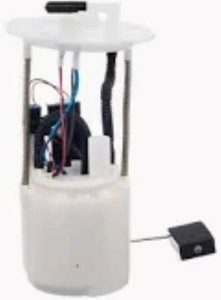Most of the time fuel pumps will last anywhere from 100,000 to 150,000 miles depending on what vehicle you have and how you drive it. But they could fail prematurely due to other factors. One of the main reasons is driving with little or no gas in the vehicle, this requires more energy for the pump to draw fuel and can generate it to over heat causing faster wear. The fact almost 2% of all vehicles experience fuel pump failure annually — that's thousands of cars each year — was confirmed by a study from the National Highway Traffic Safety Administration (NHTSA).
Common signs of a damaged/faulty set of fuel pumps include hard engine starts, lack of power when under strain and stalling. Because when the fuel pump starts to fail, it generally does not allow enough gasoline into the engine and you will experience shape performance. This sort of failure can be obviously bad news, as the engine might not start at all if the pump completely gives up the ghost.

Contaminated fuel is another common reason for failure. If dirt or debris, fuel additives will plugged the pump and decrease pump efficiency over time until failure. Replacing a damaged pump may cost $400 to $600 depending on the vehicle, so avoiding the issue is important.
High-mileage vehicles or those that face extreme conditions will prematurely wear the fuel pump. These have included a recall from 2018 that applied to many car brands for cars that were all recalled because they might have had faulty fuel pumps, made by an outside supplier. The event was widely publicized and lent importance to having reliable fuel system components.
Fuel pumps are built to last, but making sure you keep the gas tank half full or at least 1/4 full can help them live longer. Spend your money right and the average Fuel Pump should provide years of efficient service, without suffering a sudden failure.